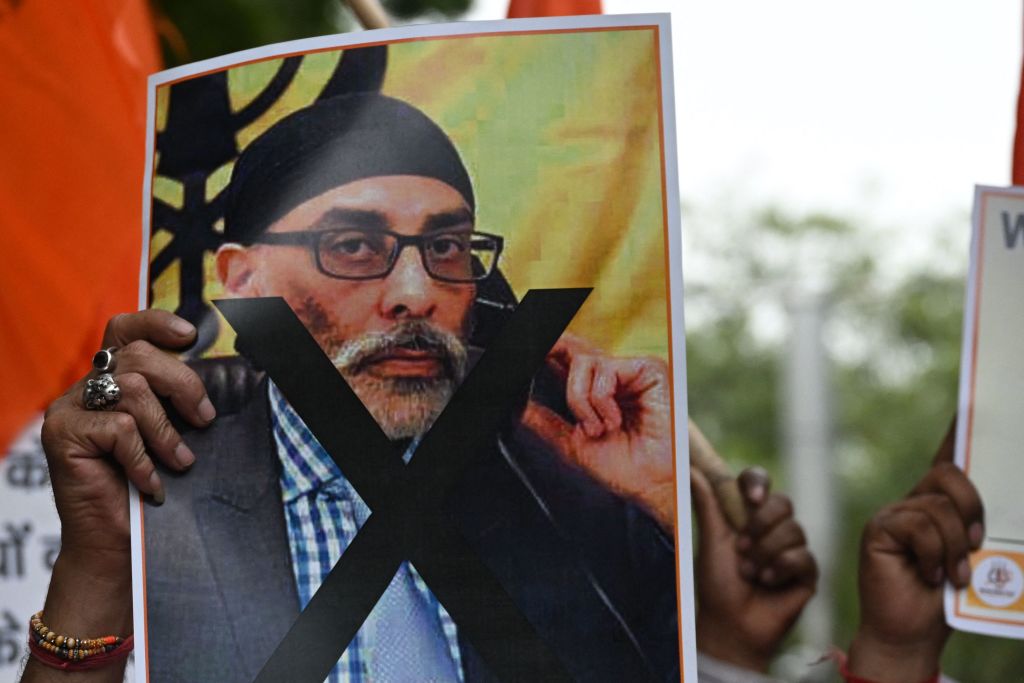Is the Indian government guilty of conducting a covert policy of targeted assassinations of political opponents on foreign soil? The question is prompted by explosive revelations that the US authorities have foiled a conspiracy to kill a Sikh separatist on American soil and have issued a warning to India over its suspected involvement. The latest allegations, reported in the Financial Times, come just two months after Canada accused India of being behind the murder of a Sikh activist in Vancouver – a claim that prompted furious denials and denunciations from New Delhi.
Sitting on the diplomatic fence is not really feasible for Washington when it involves claims of India targeting an American citizen on American soil
The target of the latest alleged plot was Gurpatwant Singh Pannun, an American citizen who is general counsel for Sikhs for Justice, a US-based activist group, which India has previously accused of involvement in alleged extremist activities. This is linked to its demands for an independent Sikh state known as ‘Khalistan’ – which would be carved out of India’s Punjab region. Such claims are anathema to the Indian authorities, who view the Sikh separatist movement as a threat to national security. It is unclear whether the plot against Pannun was abandoned after the US warning to India, or if it was actively foiled by FBI agents. The Justice department and FBI have refused to comment publicly.
Pannun has been in the public eye after a series of social media posts targeting the Indian government. He apparently angered New Delhi by issuing a video in which he warned Sikhs not to fly on Air India because their lives would be in danger. He claims he was not making a threat against the airline. Even so, the video prompted India’s National Investigation Agency to launch an investigation.
Pannun has clearly made himself unpopular with the authorities in India – but would they really seek to assassinate him? Pannun has declined to comment on whether he was warned about the plot against his life by the American authorities. All he will say is that he will ‘let the US government respond to the issue of threats to my life on American soil from the Indian operatives’. There has been no official response from the Indian foreign ministry to the allegations.
The diplomatic ramifications cannot be overstated. Canada has already accused New Delhi of involvement in the murder of Hardeep Singh Nijjar, a Canadian Sikh separatist killed in Vancouver in June. Canada’s prime minister Justin Trudeau said there were ‘credible allegations’ linking India to Nijjar’s fatal shooting. India dismissed the allegations as ‘absurd’ – a line of defence that must now be open to question and one that poses a growing diplomatic headache for Washington. When the Canadians publicly accused India of involvement in the murder of one of its citizens, Washington chose to tread a delicate line, urging India to do all in its power to help the Canadian authorities with their investigation into the killing. At the same time, Washington was careful not to be openly critical of India. What now though? Sitting on the diplomatic fence is not really feasible for Washington when it involves claims of India targeting an American citizen on American soil.
The latest developments are deeply embarrassing for the Biden administration, which has staked much on its friendship with India. It sees the country as a strategically important ally and regional counterweight to China. The US national security adviser Jake Sullivan has hailed the US-India alliance as ‘one of the defining relationships of the 21st century’. India’s prime minister Narendra Modi made a high-profile visit to Washington in June, and was accorded the honour of an address to Congress. This very public feting of Modi prompted strong criticism from human rights groups, who accuse the Indian leader and his ruling Hindu nationalist Bharatiya Janata party of turning a blind eye, and worse, to violence and discrimination against religious minorities in the country. The US administration, in staking so much political capital on India, now risks looking foolish and naive.
India, the world’s largest democracy, stands accused of conspiring to assassinate a citizen of another democracy, and on the latter’s own soil. Such behaviour – if proved – also suggests that India is arrogant enough to think it can get away with flouting democratic norms. This is a direct challenge to America’s sovereignty – one that must be confronted and dealt with, whatever the diplomatic fallout.







Comments